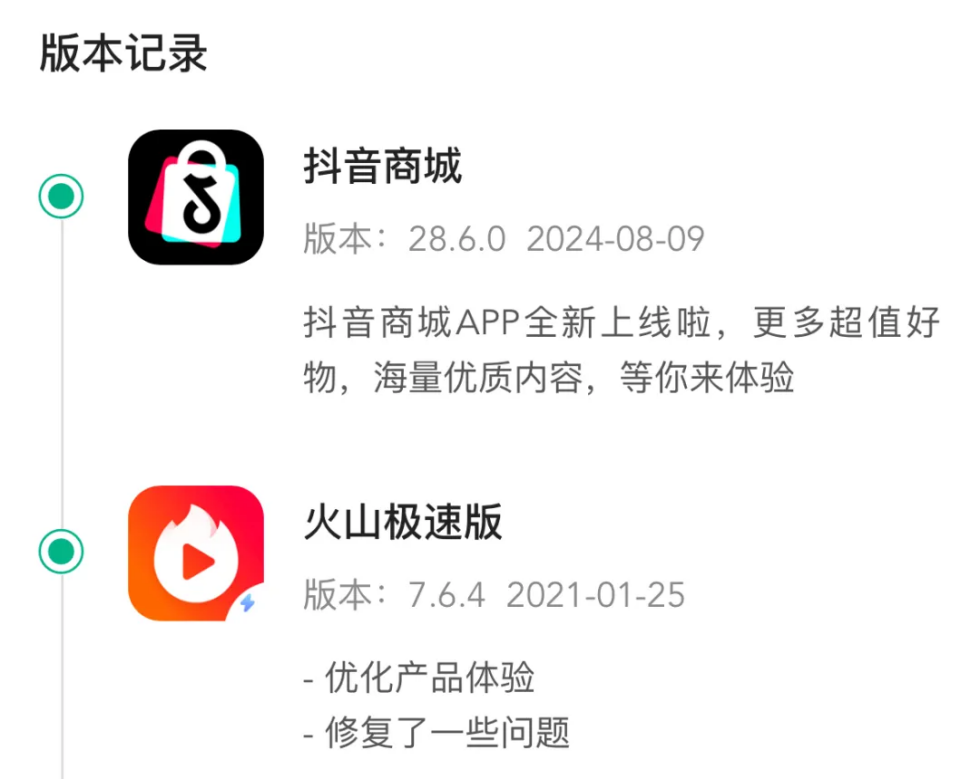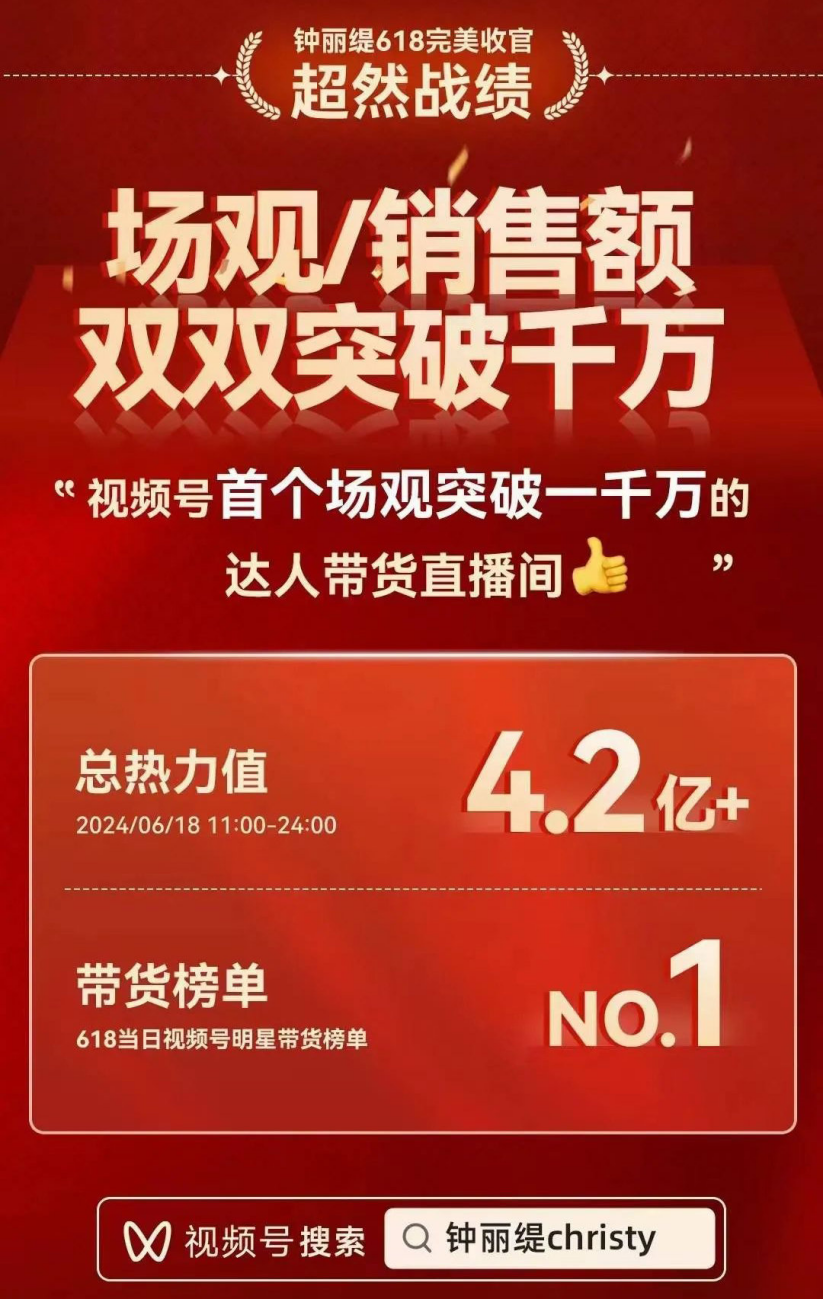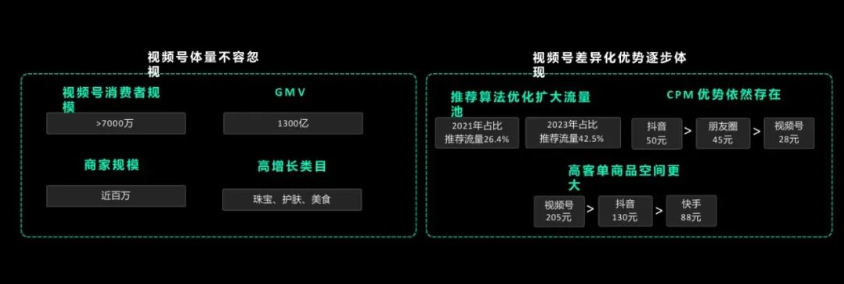Tencent tackles e-commerce again: What's new beyond video accounts?
![]() 08/16 2024
08/16 2024
![]() 610
610
Tencent's growth hope: How will merchants benefit from Tencent's all-in e-commerce strategy?

Social e-commerce welcomes a new trend.
On August 9, Douyin's app "Huoshan Lite" launched a new version on the Apple App Store, transforming into "Douyin Mall", marking its first major update in over three years.

Image source: iOS App Store
The mall's page design remains unchanged, with a UI similar to Douyin's in-app mall section. The "Shopping Cart" icon in the bottom navigation bar is now centered. To some extent, the Douyin Mall app shares similarities with Taobao and JD.com, which are now embracing content-driven strategies.
While users cannot directly publish content, they can still watch short videos and live streams, which also support product promotion. Essentially, the Douyin Mall app is a version of Douyin with a shopping channel as its homepage, sharing the same system settings.
Compared to Douyin, WeChat's adjustments in e-commerce have been more substantial.
On August 12, Tencent announced that video accounts' shops would be upgraded to WeChat Shops, with store and product information circulating across multiple WeChat scenarios like official accounts, video accounts, mini-programs, and search. Entry barriers and deposit requirements will be further reduced, even allowing for trial operations with a zero deposit.
This change in operating mode connects different content scenarios and touchpoints within the WeChat ecosystem, with components mutually directing traffic. Products become part of the content, ultimately realizing a decentralized trading ecosystem that enables smooth e-commerce circulation within the entire WeChat social system.
Although the announcement is still in the public consultation phase, Tencent President Martin Lau declared at a recent earnings call that they aim to build a WeChat e-commerce ecosystem, indicating that platforms, users, and merchants must prepare accordingly.
01 Video accounts have already supported brands financially
Earlier this year, Pony Ma said at Tencent's annual meeting that video accounts have lived up to expectations, giving Tencent a solid foothold in the short video era, and that live streaming e-commerce would be vigorously developed in 2024. According to official video account data, branded GMV accounted for only 15% of total GMV in 2023, but branded GMV grew by 226%, and the number of brands increased by 281%, with total sales nearly triple that of the previous year.
Tencent's Q2 2024 financial report also mentions that video accounts contributed to growth in e-commerce, online advertising, financial technology, and enterprise services. Gross margin increased by 21% year-on-year to RMB 85.9 billion, primarily driven by high growth in domestic games, mini-game platform services, video account advertising revenue, and technical service fees for video account merchants.
The video account's commitment to e-commerce is evident.
On April 18, the "Butterfly Plan" was implemented, categorizing influencers into five levels: S+, S, A, B, and C. Completing tasks earns corresponding e-commerce growth card rewards, with the top reward being RMB 1.5 million worth of e-commerce cards for video and live stream promotion, attracting more merchants, influencers, and brands to start live streaming sales.
Ahead of 618, Tencent merged the video account live streaming e-commerce team into the WeChat Open Platform (mini-programs, official accounts, etc.) team, with the latter now overseeing the former.
While this appears to merely disband the independent video account live streaming e-commerce team, it actually resolves direct conflicts of interest between the mini-program team's WeChat Mini Shop and video account e-commerce, allowing the department to focus its efforts.
During this year's 618 sale, actress Christy Chung's video account generated over 10 million views but only RMB 7 million in GMV. This suggests that while video accounts have an untapped audience not covered by Douyin or Kuaishou, their operating scale is relatively small. To boost GMV, long-term operation is crucial.

Image source: WeChat video account
Compared to other e-commerce platforms, video accounts offer an ecological flow advantage, enabling merchants to directly link public and private domains, enhance repurchase rates, retain customers, and attract new ones through video account incentive plans.
For white-label brands starting from scratch, leveraging video account platform mechanisms can maximize private domain traffic. For instance, "Guifei Goddess," a women's underwear brand, sells nearly 200,000 units weekly, with estimated sales exceeding RMB 8 million in the past 30 days. "Huaduoli," a beverage brand, has seen rapid growth, surpassing RMB 1 million in daily sales.
"Guifei Goddess" employs a 24/7 streaming strategy, increasing live stream duration to boost account weight and repeatedly recommend it to target users. "Huaduoli" primarily collaborates with influencers like Christy Chung, Yoga Teacher Deng Deng, and parenting blogger Li Diandian, among others, for dedicated live streams.
Whether self-broadcasting or partnering with influencers, the essence is for new brands to leverage target audiences, lock in core demographics, and convey precise brand messaging and product features to the target consumer group, aiming for greater exposure and credibility.
Established brands can quickly capture public domain traffic with their IP recognition, convert consumers through "quality content and services," and stimulate spending through hit products, deepening brand loyalty.
For instance, Nestlé leverages its brand community, official mini-program, official account, and Nestlé's enterprise WeChat to focus efforts. Using the "Nanjing Nestlé Coffee Aunt" event, they distribute live stream and short video links across external communities and group leaders, rapidly engaging and maintaining traffic for hit content, precisely reaching target consumers.
Affordable sports brand Camel relies on a combination of public and private domain traffic strategies, using advertising tools to drive conversions. After building a private domain traffic pool of official accounts and WeChat groups, they precisely target 30-49-year-old female audiences with WeChat Beans, leveraging high conversion rates to drive sales and push live stream ROI peaks above 4.5.
When ad performance plateaus, Camel's ADQ platform streamlines the "exposure-to-live stream-to-purchase" funnel, leveraging high-quality short videos to drive conversions. This significantly enhances merchant ROI, enabling snowball growth cycles.
From Patipai.com to strategic investments in JD.com and Pinduoduo, and from WeChat mini-programs, WeChat Mini Shop, video account shops to the current WeChat Shop, Tencent has long coveted the e-commerce pie.
While Tencent hasn't missed any trends, it hasn't broken through in e-commerce. Converting traffic acquired on Tencent platforms into sales has lacked a mature methodology.
Currently, the live streaming e-commerce industry recognizes three key entry requirements: after-sales service, supply chain fulfillment, and operational capability, none of which are Tencent's strengths, requiring strategic restructuring. To compete with Douyin and Kuaishou, WeChat faces a tough battle, possibly even requiring a difficult self-revolution.
02 How will merchants adapt to the new WeChat as the giant turns?
With shelf e-commerce traffic peaking and content-driven e-commerce intensifying, the slow-moving video account is still seen as e-commerce's final "traffic lowland."
Growth Black Box data shows that as of June 5, 2024, video accounts have opened 37 primary categories, 272 secondary categories, and over 2,000 tertiary categories for merchant recruitment, with merchant scale approaching one million, indicating significant growth potential.
Currently, over 80% of platform merchants are white-label brands, while branded merchants account for 15%, far lower than Douyin's 50% and Kuaishou's 30%. For small and medium-sized merchants, video accounts haven't yet seen head brands monopolize traffic, presenting catching-up opportunities.
In 2023, the average order value on video accounts was RMB 205, higher than Douyin's RMB 130 and Kuaishou's RMB 88. However, video accounts' CPM was RMB 28, lower than Douyin's RMB 50. This means lower costs for the same exposure on video accounts, boosting overall merchant profitability due to higher order values and lower display costs.

Image source: Black Box Data
Li Miao, a service provider, revealed, "Merchants currently operating on video accounts already have stores on Taobao, JD.com, and Pinduoduo, seeking secondary private domain distribution on WeChat. Previously, without a mini-program entry on video account pages, merchants had to start from scratch for public domain live streaming sales, abandoning existing private domain precipitate . This adjustment combines video account public domain traffic with existing private domain distribution chains, significantly enhancing transaction efficiency."
In July, WeChat's video account e-commerce team underwent a sudden adjustment involving the AMS (Advertising and Marketing Services) team, previously under CDG (Corporate Development Group). Primarily responsible for live streaming operations and business governance, this team began rectification and optimization.
In addition to providing traffic allocation and digital marketing services, the AMS business line also supports and services video account transactions. After the adjustment, Tencent Advertising will no longer oversee video account live streaming operations and governance, duties now transferred to the WeChat Business Group, with more traffic support.
Video account short videos and live streams attract public domain traffic, with WeChat Shop serving as the transaction carrier. Merchants can also integrate private domain scenarios like official accounts and Moments into WeChat Shop, positioning WeChat e-commerce as a fusion of "interest-driven e-commerce" and "traditional shelf e-commerce."
This decentralized traffic distribution prevents public domain traffic monopolization, giving every merchant an opportunity to build their private domain traffic pool. However, this poses higher operational demands, especially for merchants accustomed to platform traffic allocation mechanisms and ROI forecasting. Integrating scattered WeChat traffic entrance , analyzing channel conversion efficiency, and making optimal decisions will be challenging.
WeChat Shop's launch may also impact pure private domain tools like Youzan, Kuaituantuan, and Qunjielong, as merchants may opt for the free official tool and platform over paying 3-5% technical service fees to third-party links. Merchant migration is inevitable.
WeChat Open Class PRO 2023 noted that video account shop sales accounted for over 90% of total sales, with over 1,000 service providers connected to video account live streaming, contributing over 30% of sales. This indicates a positive cycle in the video account e-commerce ecosystem.
Therefore, WeChat Shop's "Zero Deposit Trial Operation" rule aims to lower barriers and attract merchants. However, intermediary service providers won't sit idly by. Any signs of decoupling or resistance from these providers could significantly impact WeChat's current e-commerce ecosystem.
WeChat has traditionally emphasized product strength over operational prowess, with a relatively weak service system. With WeChat's ecosystem Too much content to accommodate , if vast and diverse traffic cannot be effectively commercialized through cohesive product and operational logic, WeChat e-commerce's revival may fall short of platform commercialization goals.
Li Xianyang, who managed two mid-to-senior apparel accounts on video accounts in the first half, noted that while video accounts' scale is still modest, they offer low barriers, simple operation, and stable GMV. On Douyin and Kuaishou, profitability requires addressing all shortcomings. In contrast, video accounts, dominated by users over 50, prioritize targeting high-net-worth individuals with strong purchasing power and low price sensitivity.
"However, the current WeChat Shop still relies on public domain traffic, similar to other e-commerce platforms, requiring continuous live streaming and video posting for transactions."
Despite issues and uncertainties surrounding WeChat e-commerce, as the shop matures and leverages Tencent's integrated product, logistics, and information flows, video account e-commerce remains a fertile ground for brand merchants to explore.







